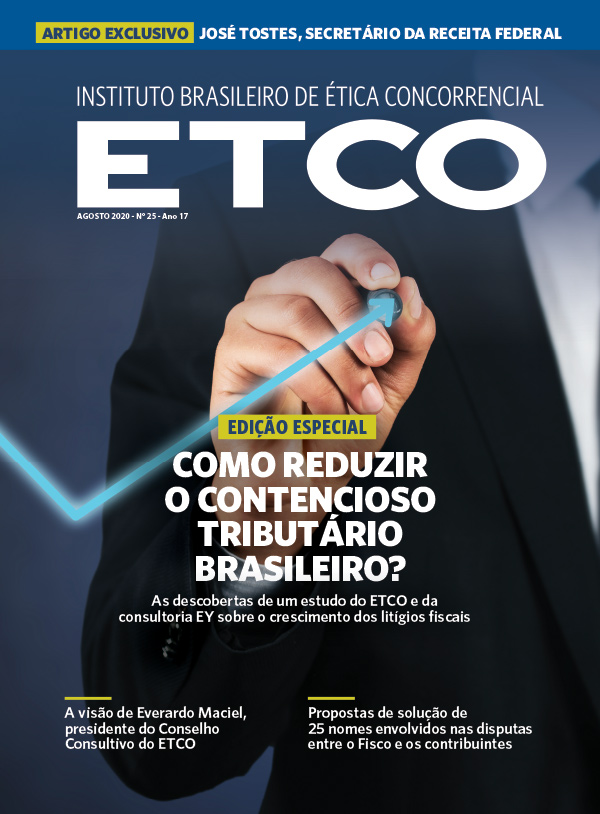"Changing the types or names of taxes will not have much effect"

Tax Law professor Heleno Taveira Torres, from USP, suggests a structural change in the inspection, assessment and collection of tax credits to reduce litigation
For the head professor of the Department of Economic, Financial and Tax Law at the Faculty of Law of the University of São Paulo (USP) Heleno Taveira Torres, the way to reduce litigation in Brazil includes the need for greater proximity between the tax authorities and taxpayers, with effective communication and service channels. It is also essential to adopt strategies that can avoid litigation - such as the administrative review of the entries made by the inspectors - or anticipate the end of the dispute, such as conciliation or the tax transaction. None of this will achieve great results, however, without cutting red tape. “The tax system needs to function in a normal state, ensuring predictability for taxpayers”, summarizes Torres. The following is his view on how to reduce litigation.

Vicious circle
Tax litigation is both a cause and a consequence: it contributes to increasing legal uncertainty and is aggravated by it. It is a vicious circle that needs to lose strength, as legal certainty is the basis of the tax system. And the tax system needs to function in a normal state, ensuring predictability for taxpayers. A system in which it is possible to know with precision the taxes that must be paid and the obligations related to the taxes due. This tranquility is essential for the business environment and the attraction of investments.
Impartial review
Within our inspection model, preventive measures are lacking in the tax assessment phase. One of the most important would be to create internal administrative review mechanisms, before a dispute goes to court. At the federal level, the Regional Judgment Offices should have the function of reviewing the tax assessments - that is, the work of the inspectors -, and not be an instance of first degree of judgment, which in practice only delays in many cases the sending of launches to Carf. With this pro-forma action, in favor of the tax authorities, the police stations become part of the structure of the litigation, and not an instance in which the litigation could still be avoided by identifying errors or exaggerations of the inspection. This review of the launches by a collegiate authority, even at the beginning of the administrative process, would be the best way to ensure legality, without this being seen as any interference with the work of the inspectors. I am not in favor of the idea of creating punishments for inspectors who make mistakes, because no one can be punished for differences in the interpretation of laws. In the state of legality, due administrative legal process matters. I prefer inspectors who are free and prepared to fight tax evasion - a practice that is very damaging to Brazil because it affects free competition - rather than inspectors for fear that they might receive some type of punishment.
Tax reconciliation
When it comes to solutions for litigation, I really like the idea of conciliation as a strategy to prevent litigation or interrupt the controversy at any time. It would be important to have space to reconcile at all stages of the administrative or judicial process. There are countries with very successful experiences with alternative methods. In Italy, conciliation has reduced cases by more than 70% of its inventory. In Portugal, there is the Administrative Arbitration Center, created by the Ministry of Justice. The decision of the processes that proceed in this way has only taken four months, due also to simpler and faster procedural regimes. It is a positive thing for both the state and taxpayers, as long-standing disputes are of no interest to anyone.
Less bureaucracy
Changing the types or names of taxes will not have much effect if the structural problem of the inspection, assessment and collection of the tax credit is not reviewed. Our tax system is extremely bureaucratic and slow, with many redundancies in processes, documents and excess of accessory obligations. The tax authorities' communication with the taxpayer is terrible, in all instances. What we have is a superficial service, which does not cooperate to solve the problems of those who seek information and certainty in the understanding of the Tax Authorities, without any subsequent or sudden changes. We need a broad and effective strategy to reduce tax bureaucracy, as part of the necessary actions to improve our business environment and legal security. This becomes even more important in a business scenario that, under the influence of technological advances, becomes more dynamic and faster every day.




 President of Insper and ex-secretary of Economic Policy, Marcos Lisboa says that following internationally established practices would be the simplest path for Brazil
President of Insper and ex-secretary of Economic Policy, Marcos Lisboa says that following internationally established practices would be the simplest path for Brazil Getap's executive director, Zabetta Macarini Gorissen, says that Brazil has grown accustomed to resorting to litigation instead of acting directly at the source: improving tax legislation
Getap's executive director, Zabetta Macarini Gorissen, says that Brazil has grown accustomed to resorting to litigation instead of acting directly at the source: improving tax legislation Economist Lorreine Messias, author of studies on the subject, says that structural reform is necessary - and recalls that other countries can set good examples of how to do this
Economist Lorreine Messias, author of studies on the subject, says that structural reform is necessary - and recalls that other countries can set good examples of how to do this The president of Unafisco, Mauro Silva, points out the need to expand professional improvement initiatives for the staff of tax auditors of the Federal Revenue
The president of Unafisco, Mauro Silva, points out the need to expand professional improvement initiatives for the staff of tax auditors of the Federal Revenue Attorney Juliana Araújo, PGFN coordinator at TRF-3, says what the three involved in the issue should do to reduce litigation
Attorney Juliana Araújo, PGFN coordinator at TRF-3, says what the three involved in the issue should do to reduce litigation PGFN Attorney Leonardo Alvim defends tax reform and specific measures to increase legal certainty in the tax field
PGFN Attorney Leonardo Alvim defends tax reform and specific measures to increase legal certainty in the tax field Adriana Gomes de Paula Rocha, Deputy Attorney General of Consultancy and Strategy of the Judicial Representation, talks about the reasons for the congestion of tax processes in the Judiciary
Adriana Gomes de Paula Rocha, Deputy Attorney General of Consultancy and Strategy of the Judicial Representation, talks about the reasons for the congestion of tax processes in the Judiciary The ways to reduce litigation, in the view of the Deputy Attorney General for Consulting and Administrative-Tax Litigation, Phelippe Toledo Pires de Oliveira
The ways to reduce litigation, in the view of the Deputy Attorney General for Consulting and Administrative-Tax Litigation, Phelippe Toledo Pires de Oliveira
